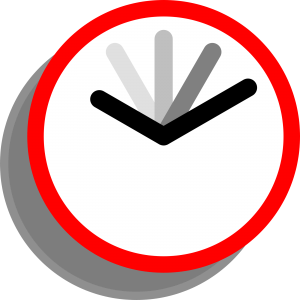So you’ve decided to start “blogging”? You heard from a friend or colleague that you should do it and that it would be good for your business right? They promised you that your readers (what readers) will love it, correct? They possibly may have even told you that it would be good for SEO?
So you sit down and proceed to create a topic for your first ever blog post. You start searching and researching topics online and read a couple of blogs to get an idea of what you want to write about. You bullet point the main headers, make some thoughts beneath each and begin writing. Then, you look up and your whole morning is basically gone!
The funny thing is your friend or colleague is correct. The real catch though is that a customer-winning blog strategy takes time, practice and care, something which most business owners or entrepreneurs just don’t have. However, a customer-winning blog strategy doesn’t have to be difficult or a waste. So today, we will explore several ways to make starting and maintaining a blog easier.
Use A Notepad To Store Ideas

The #1 reason, I think, that people get frustrated when trying to start a blog is that they are only “bloggers” when they sit down to write. This is the wrong approach. Great blogs aren’t produced by sitting down once a week and then conjuring up a topic out of thin air.
Great blogs are produced by those who see “blogging” as a mentality. The best blogs–the ones that win new customers and really engage a following–are the ones which constantly listen to the comments of their readers and anticipate what their readers want. This requires a watchful eye and open ear. In other words, if you really want to connect with an audience, you need to be considering blog topics helpful to that audience all the time.
Here’s how you can make that happen: 1. store blog topics in a physical notepad OR 2. Store blog topics in a digital notepad. Having a notepad nearby will allow you to jot down ideas any time they come to you. It will also provide with focused material to choose from the next time you sit down to write. One other major benefit to keeping these ideas stored in your notepad is that your topics will likely be ready-made for your audience.
If you want to use pen and paper–that’s great. For those more digitally oriented, here’s some useful apps to choose from:
Apps to help keep potential blog topics organized:
- Evernote – With its ability to capture a wide range of digital information and exceptional organizational features, Evernote is unquestionably the best note-taking app out there. It also works on pretty much every device.
- Microsoft OneNote – Since it’s a part of Microsoft’s Office suite, OneNote plays well with applications such as Word, Excel and PowerPoint. The app is available across all major platforms such as iOS and Android.
- Simplenote – Very similar to Evernote | Super simple
- Google Keep – From textual information to photos, Google Keep makes it easy to jot down anything. You can even speak a voice memo on the go, and the app will transcribe it automatically. Google Keep is available for both Android and iOS. It can be accessed online as well.
Plan Before You Write
This tip goes hand in hand with the previous one. In addition to creating a storehouse for your blog topic ideas, it’s also essential that you map out your blog post before you begin writing. This is basically the same advice you got in grade school English class. If you want write a clear, organized paper you need to make a road-map.
The same applies for blogging. By mapping out your blog post in your notepad before you start writing, you will produce a post that is clearer and more helpful to your audience. (Let me also repeat those words: clear and helpful. These two words are essential pieces of every customer-winning blog.)
Write Within Your Expertise
One mistake many novice bloggers make is writing on topics that have little or nothing to do with their specific niche. For example,
- A home re-modeler writing about the benefit of interior design.
- A criminal defense lawyer writing on Constitutional law.
Now this isn’t to say that a blogger can never go past his niche to create good entertaining content. What it does mean though is that a great blogger should focus on his or hers specific niche. As a result, a really great blog will speak directly to his or hers audience within that niche.
Sticking to your niche has several other benefits as well. It will help make sure that your content is relevant to your readers. Niche content also helps make sure that those who are searching for answers, tutorials, and advice covered in your blog will be people who are more likely to by your product or service.
Use A Blog Template
When it comes to blogging, you don’t have to reinvent the wheel. A big mistake common to beginner bloggers is that they try to create everything from scratch. This is great and all when you have time to spare, but when you don’t it’s a blog killer.
There are hundreds, probably thousands of good blog post templates out there. Take them, use them, and save time.
Time Yourself And Write!

As I am sure, we have probably all experienced writers block at some point in time of our lives. Sometimes, you just cannot get around it and then you feel the need to put off your writing project until the block clears. This happens occasionally and that is just fine. It is important however as a small business owner with little time to spare to develop good blogging habits so that you maximize your content output/time efficiency.
One of the best ways to do this is to just time yourself. When you sit down when getting ready to write, get out an old-school stopwatch or use one online and start the countdown. (I recommend not using your cell-phone because notifications and alerts provide distractions).
Additionally, when you set a timer you must promise to yourself to do one thing. That one thing is to write. Without the writing there is no blog. You can always revise, but without writing there is no revisions.
As a final part to this point is setting the timer does not imply that you should sacrifice on quality. In the blogging world, quality will and always will supersede quantity and no substitute for it exists. Using a timer is simply meant to help keep you more focused and productive.
If You Don’t Have Time, Aim For Quality
This tip is exactly what the title says it is. If you are a small business owner or an entrepreneur fresh into the blogging scene, you probably don’t have the time to just be sitting around brainstorming about blog topics, or creating a 5000 word blog post. That is definitely okay.
What is not okay, is sacrificing the quality of your posts because of having to crunch on time or because you think nobody is going to read it if your blog post is anything under 5000 words.
When it comes to anything quality always wins, and your readers will read your blog as long as it is helpful to them.
If you don’t have a lot of time, or writing isn’t your string suit, maybe consider creating quality driven posts centered on how-to tutorials or tips & tricks of your trade or industry.
If what you write is useful to an audience, then your audience will continue to return to your blog.



One Comment